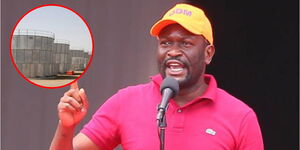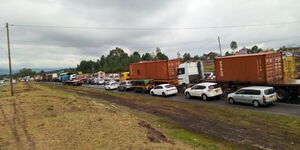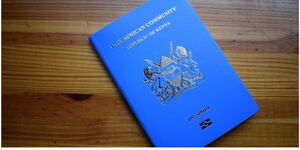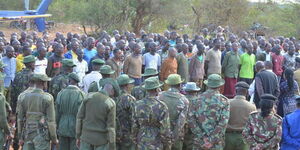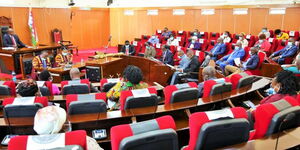On Monday, a little-known area in Naivasha known as Fai Amario, along the Naivasha-Mai Mahiu highway, became the subject of national news after an earth tremor caused a bridge to develop huge cracks.
Other reports indicated that the huge cracks on the road near the Fai Amario bridge were a result of vandalism.
The tremor hit several counties in the country on Sunday night but the bridge was subject to much publicity. Many Kenyans were, however, unaware of the fact that the area is named after a dreaded Kenyan tycoon, the late Fai Omar Amario, who once lived in the area.
A 2010 report by Daily Nation indicated that Amario was born Peter Gilbert Njoroge Ng'ang'a in 1954, Amario was an only child to a family living in abject poverty in Banana, Kiambu county.
He, however, died as the founder of a multi-million empire which boasted of a legacy that continues to live on nearly a decade since his death in 2010.
There are many stories of the dramatic life of Amario who bought a gold casket for himself and went ahead to plan every detail of his burial before his passing.
He is also remembered for placing newspaper adverts on all prominent dailies to express his message of seeking a wife to marry.
With regards to matters of business, Amario is remembered as an ingenious alcohol distiller and winemaker who sponsored his learning in Israel to study the craft at the Wine Institute in Rehovot, nine kilometers from Tel Aviv.
He returned to Kenya and built a factory that employed over 200 people. The factory came up with brands like Pooler, Medusa, Amario’s Sherry, Uhuru 2000, Kata Pingu, Mahewa, and Cantata, which were distributed via his depots in Meru, Murang’a, Thika, and Naivasha.
He was then a subject of controversy and trouble when he was accused of murdering two of his employees in 1996. One of them was Gitau Karago, the deputy manager at one of his depots in Murang'a.
Karago is said to have called his boss sometime in late 1995 to inform him that Ksh 212,000 was missing from the company. Amario responded by sacking Karago together with Makimei Njoroge, the depot’s manager.
A week after his firing, Karago was found dead in Naivasha with a six-inch nail hammered into his head. Njoroge, who was unconscious, survived and identified Amario as one of the attackers.
The businessman was arrested but the state ultimately dropped the charges against him.
In 2004, officers from the flying squad unit raided Amario's Naivasha home over suspicion of murdering his wife, Sarah Wanjiru, who was suspected to have been buried in the highly secured compound.
After digging in the compound for hours with earth movers, the police were surprised to discover various car parts buried in the compound.
Also discovered were ten unlicensed shotguns in a bedroom, seven brand new but dismantled Toyota Prado and Mitsubishi four-wheel drive vehicles, as well as around 20 computers.
In 2005, Amario was sentenced to serve 9 years at Kamiti Maximum Prison even as he threatened the magistrate and police officers handling his case who were offered extra security by the state.
The life behind bars seemed to have humbled the tycoon as he soon shifted focus to opportunities of making life better for prisoners.
In the report by Daily Nation he was quoted stating, “I had dreamt of acquiring a helicopter. But Kamiti has taught me not to think like money minded Kenyan. Now I have a different crusade: to change this country and make it more civilised.”
Worse was to come when Amario was charged with robbing businessman Mulraj Kanji Patel of his Toyota Land Cruiser, two wrist watches, a gold necklace, a bracelet, two cell phones and Ksh 22,000 all valued at Ksh2.8 million.
In addition to violent robbery, he was charged with being the head of a car theft syndicate.
At some point, he pleaded for mercy, saying his children and business needed him. He was released three years later. He died in 2010 and was given a heroic burial in Naivasha.

